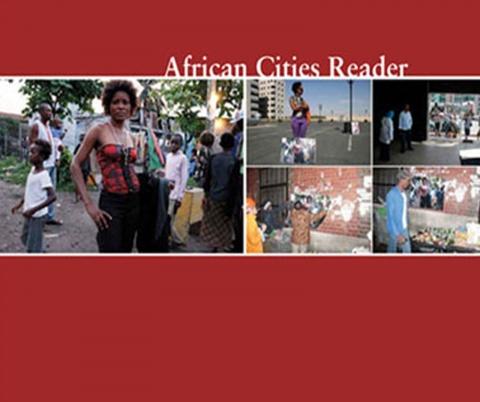Call for Submissions: African Cities Reader III: land, property and value
The African Cities Reader is a journal-like platform where Africans tell their own stories, draw their own maps and represent their own spatial topographies as our cities continue to evolve and adapt at the interstice of difference, complexity, opportunism, and irony. The intervention is premised on the fact that the cultural, livelihood, religious, stylistic, commercial, familial, knowledge producing and navigational capacities of African urbanites are typically overlooked, unappreciated and undervalued. The aim of the African Cities Reader is to bring their stories and practices to the fore through a variety of genres and experiments in criticality.

The third African Cities Reader will explore the unholy trinity of land, property and value-the life force of cities everywhere - especially in an era of late modernity marked by a speculative impulse that takes on a spectral character as it instigates adventures of city imagineering, deal-making, and symbolic reinvestment. The material effects of which is often displacement, violence, day light robbery and night time seduction. This incessant (re)making of the African city is a game that leaves few untouched or unmoved.
As too many demands are placed on too few infrastructural endowments, land and living space come at a premium. Ingrained differential standards of what constitutes “acceptable” or “adequate” levels of consumption create a grotesque reflection of class and other markers of hierarchy in the built landscape. And in the absence of widespread formal and regular sources of income, most city dwellers are forced to hedge every shred of connection, cunning, positioning and affiliation to retain a foothold or expand their room for manoeuvre. The third instalment of the African Cities Reader will bring these constitutive dynamics to life.
Specifically, we are looking for imaginative reflections on the recent phenomenon of investment in urban utopias for the global middle-class unmoored from the messy realities of emergent urbanisms. In fact, the investment, construction, marketing and governance dynamics of these experiments reflect a fascinating geography of rapidly changing geo-economics in an increasingly multi-polar world. At the other end of the spectrum, we are also curious about the enduring traces of autonomous artist colonies or spaces; often modest material interventions but with powerful symbolic effects. Asef Bayat draws our attention to what he calls “the quiet encroachment of the ordinary” - survival practices of urban majorities that involve the relentless occupation of resources at the expense of elites to simply get by, but which add up to a redefinition of land-use, settlement patterns and resource flows in the city. (Bayat, A. (2000) ‘Social Movements, Activism and Social Development in the Middle East’, Civil Society and Social Movements Programme Paper, Geneva: UNRISD). Stories, theorisations and illustrations that flesh out this proposition are invited.
Furthermore, the new and emerging forces of power and investment cannot but imprint themselves on the urban fabric. Their power and status demands a built manifestation. So, we are curious to better understand the changing visual landscapes and cultures as religious, commercial, ethnic, security and other forces announce their power and intentions. How might these symbolic economies be redeployed and ridiculed as ordinary people move in and out of their intentions of place-making?
Developmentalist discources on tenure security as a gateway to urban citizenship has been part of the mainstream for at least three decades. What has this resulted in? Why is there still such an abiding optimism about the magical powers of title and tenure security? Where might these discourses go to next? How can they possibly make sense of the vast peri-urban dynamics that now dominate the lived reality of most African cities?
Finally, since African cities and towns (including new ones) will have to accommodate at least another four hundred million people over the next two decades, what is the future of land, property and value? What alternative imaginaries are available to us to think about the bare fact of co-existence, being, and home? Is there even a horizon to be thought or imagined? What might the hue of that horizon be?
In keeping with previous manifestations, the third African Cities Reader remains open to multiple genres (literature, philosophy, faction, reportage, ethnographic narrative, etc.), forms of representation (text, image, sound and possibly performance), and points of view. The African Cities Reader insists on embodying the rich pluralism, cosmopolitanism and diversity of emergent urbanisms across Africa. Thus, the Reader invites and undertake to commission writing and art by practitioners, academics, activists and artists from diverse fields across Africa in all of her expansiveness.
Submissions will be accepted until Wednesday, 31st August 2012, and should be submitted electronically in Word format and low-res jpg to the email address below. Submissions may vary in subject matter and will be assessed on their relevance to theme. All work should accompany a short abstract, biography and relevant contact details.
For further information contact:
Liepollo Rantekoa: africancitiesreader@chimurenga.co.za

